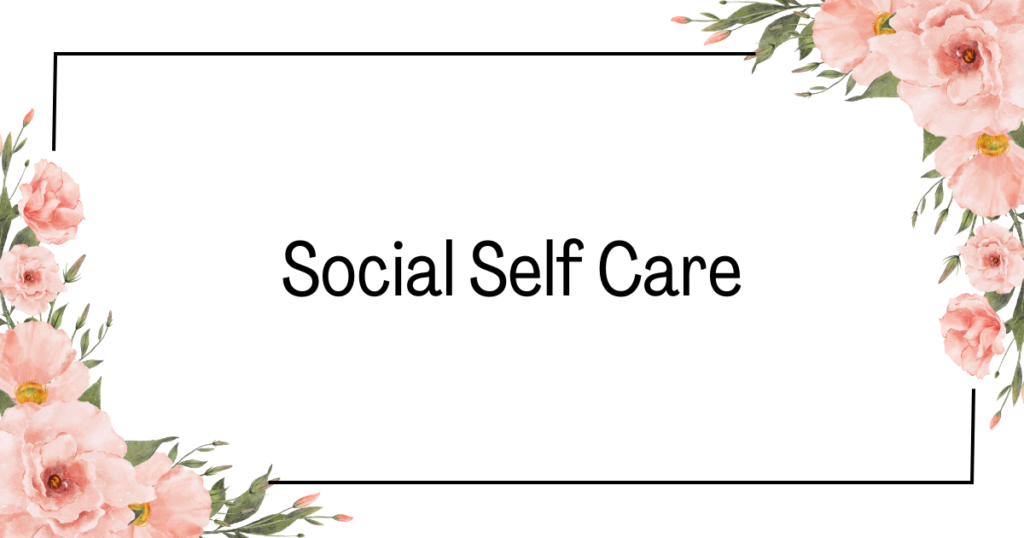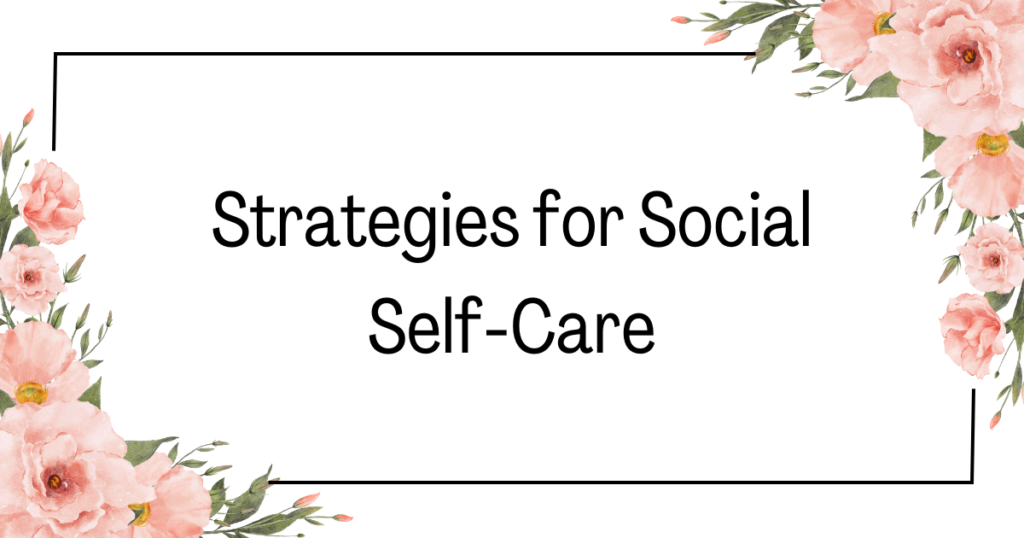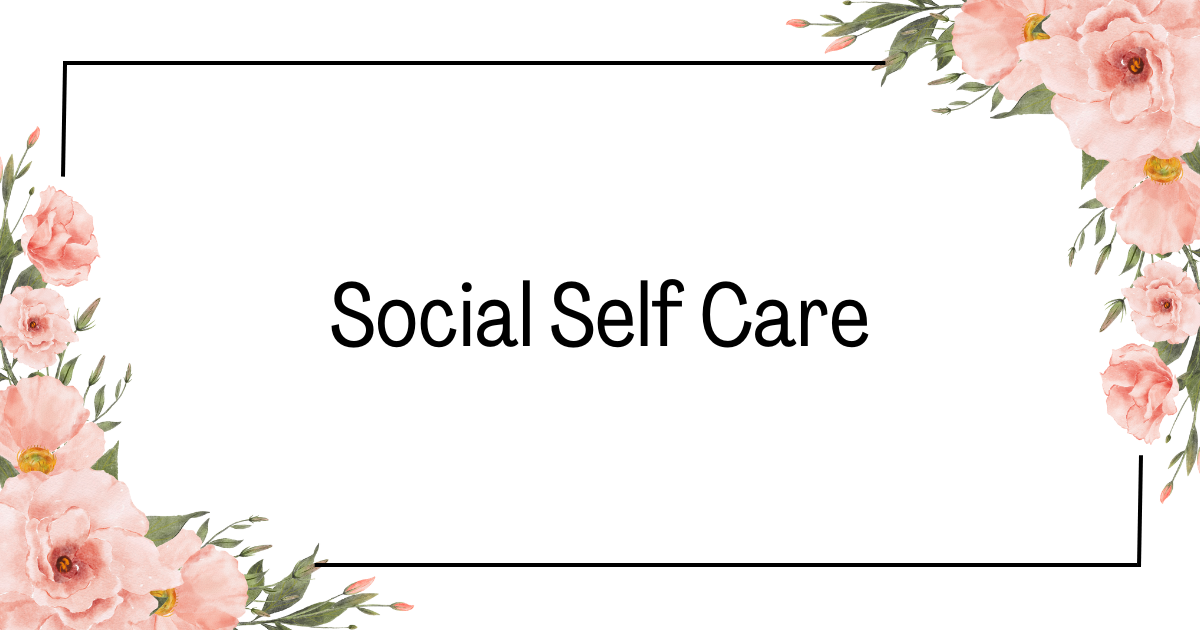When people ask what social self care is, a lot of points come to mind. Most people think self-care includes cutting off people and staying alone. But it’s not true. Social self-care means keeping in touch with the people around you, especially your friends and family. Spending time with your family or friends is very important for our overall well-being. Spending time with a person who has positive thoughts will be very beneficial for your health.

Table of Contents
Strategies for Social Self Care

Here are some social self-care strategies:
- Assess Relationships: Think about your social connections and evaluate which relationships bring you joy and happiness. Assess by talking to people from whom you get positive energy and which relationships are draining your mind. Try to keep your distance from people who give you negative energy.
- Set Boundaries: For your social self care, try to establish healthy boundaries with people. You can make a schedule in which you can manage your relations by setting time and needs in a respectful manner. By setting boundaries, you will be able to maintain your social well-being as well as your mental well-being.
- Positive Connections: Try to find connections that give you positive energy, and whenever you feel down, talk with people who boost your positive energy. We should also make efforts to make our relationships strong with the people who give us positive vibes.
- Regular Connection: We should spend our time daily with our loved ones. No matter how busy your routine is, you must spend time with them to show your affection for them, and talking with them will bring happiness to you. Also, with consistent social interaction, you will be able to reduce the stress of your workload.
- Not Comfortable? Say No: If you are not comfortable doing something, then learn to say no. Don’t put yourself under pressure just to say no. If you don’t have time to do the task for someone, then simply tell them that you are not available to make this commitment. You will make your life easier by adopting this habit.
- Practice Listening: You must try to develop a habit of active listening. In this habit, you have to listen to the people by staying quiet and listening to the opinions of different people on different topics. You can ask them questions. This habit will increase your knowledge, and people will also like to share their thoughts with you because they know that you will listen to them with full attention.
- Manage Social Self-Care: You also need to manage your social life and your personal life. You have to maintain a balance between them.
Conclusion:
In conclusion, social self care is as important as physical self-care and mental self care because all of them have connections with each other. By working on our social selves, we will be able to live a happy and healthy life. So it’s essential to maintain a balance between them.
What is the meaning of social self care?
Social Self Care means taking care of your healthy relationships to stay healthy and happy.
What is an example of social self care?
1. Stay connected with the people who bring happiness to you.
2. Give time to your family and friends.
3. Ignore people who give you negative vibes.
Why is social self care important?
Social self-care is important for our mental and physical health.
How can I take care of myself socially?
1. Stay connected with the people who give you positive vibes.
2. Spend time with your friends and family.
3. Set boundaries with the people.
Why is self-care important for youth?
Self-care is important for youth because whatever activities they do affect their health mentally and physically. So it is important that they take care of their social activities to live a happy and successful life.
Is self-care a social skill?
Yes, self care is a social skill.
What are the skills in social care?
1. Ability to listen and bear
2. Ability to not take things personally
3. Ability to hide pains
4. Ability to control anger
What is self-care in social work?
1. Ability to listen
2. Ability to stay quiet
3. Ability to keep secrets
4. Ability to share weakness
5. Ability to share feelings
What is self-neglect in health and social care?
Self-neglect in health and social care is an inability to keep yourself away from harm.

